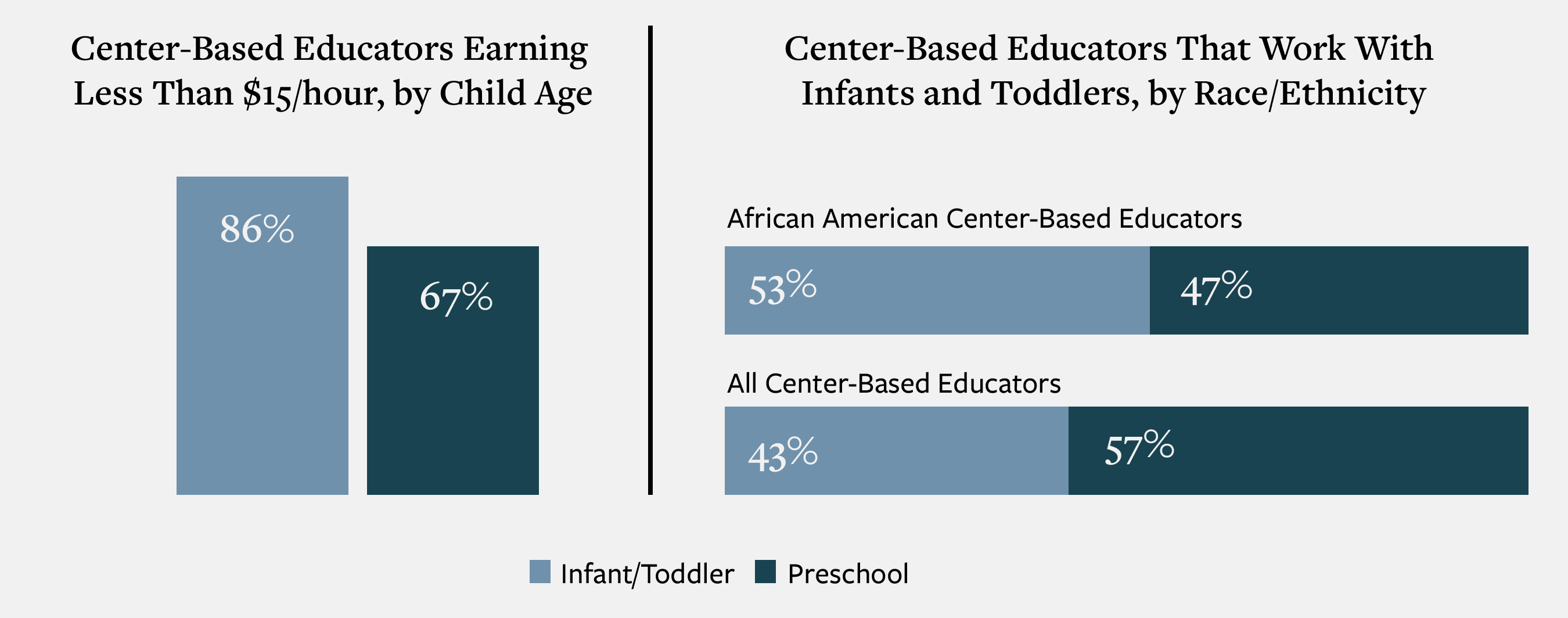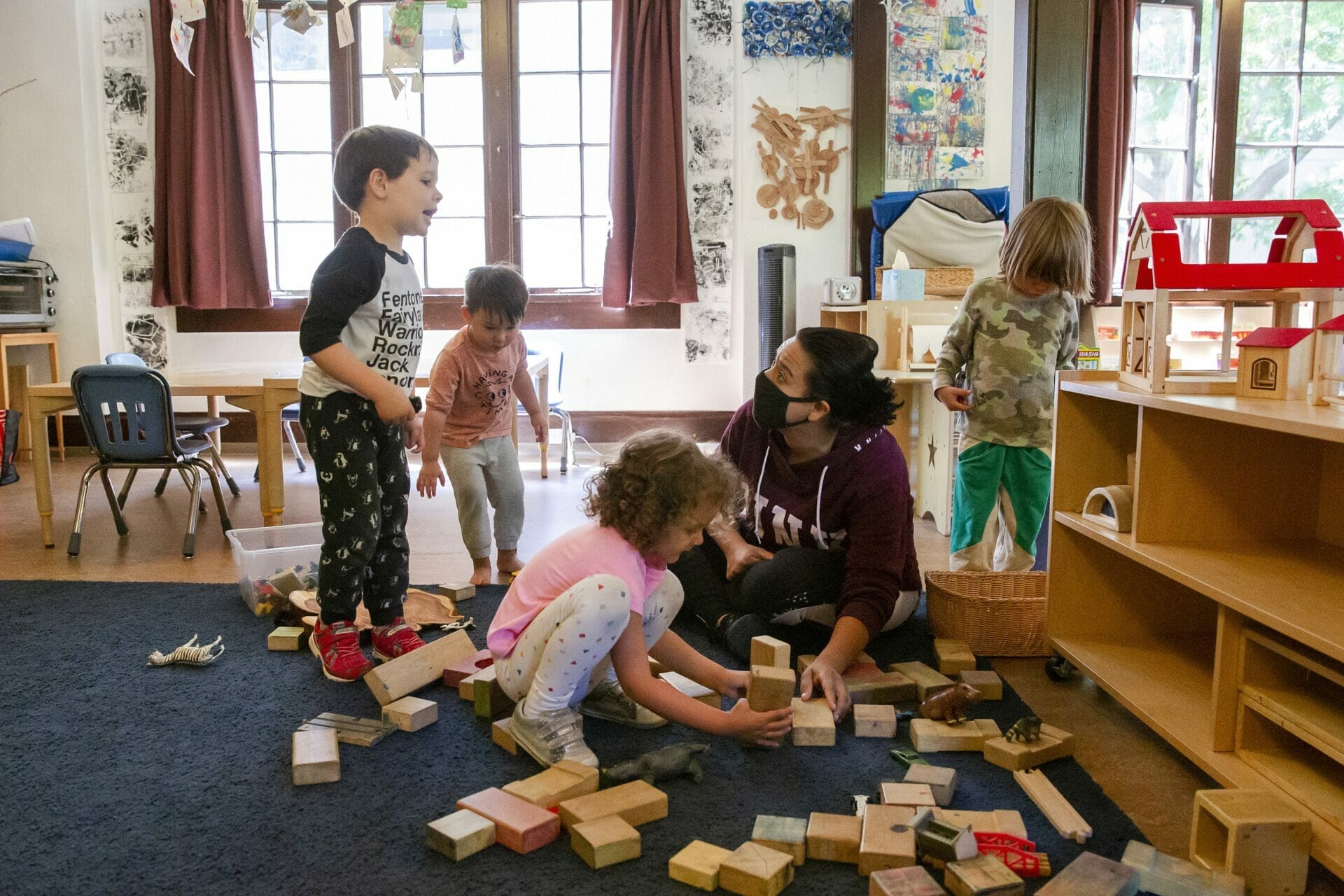Those who teach and care for young children are among the lowest paid workers in every state. Early educators are more likely to be women and Black or Latinx than teachers of older children, and they experience poverty at rates that are four to fourteen times higher than K-12 teachers.
Across different types of settings and job roles, Black early educators are paid on average $0.78 less per hour than their white peers, and the gap widens based on the age of children they teach.
Black early educators earn $0.77 less per hour on average than other infant-and-toddler teachers; among preschool teachers, this wage gap widens to $1.71 per hour.

Additionally, early educators’ are far less likely than K-12 teachers to have health coverage or paid sick leave should they become infected during the pandemic. And these dangers are heightened for Black and Latinx early educators, who face higher community death rates from COVID-19.
Increased recognition and appreciation for their labor during this time of crisis–without appropriate pay, health care, and personal protective equipment (PPE) – continues the historic undervaluing of labor performed by women and minorities–and enduring disregard for the well-being of early educators. It must end.



